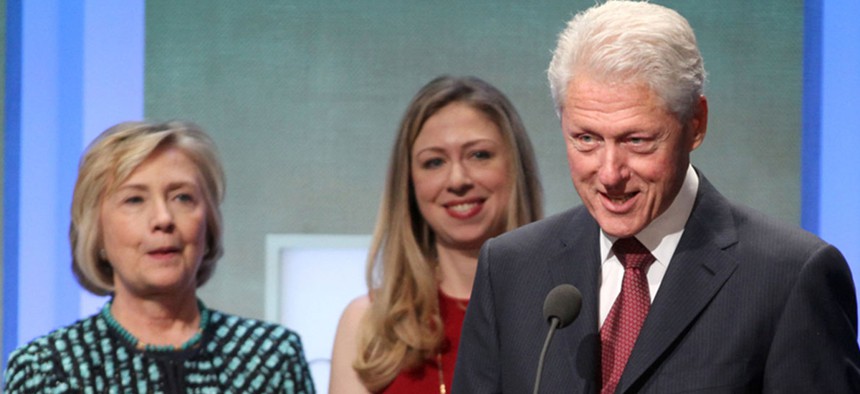
JStone / Shutterstock.com
Does the World Need the Clinton Foundation?
Some say a promise to abstain from foreign donations isn’t enough; others say the services the organization provides in the developing world are essential.
Last Thursday (Aug. 18), former US president Bill Clinton, husband to current Democratic presidential nominee Hillary Clinton, vowed that Clinton Foundation would stop receiving foreign donations should she win the White House in November.
This follows the recent release of emails from Mrs. Clinton’s tenure as Secretary of State which indicate possible conflicts of interest and questionable relationships between the State Department and top Clinton Foundation donors.
“That’s a good start, but it doesn’t go far enough,” writes Josh Voorhees for Slate. “While the Clintons are now promising to build that firewall for themselves if they win the White House, this announcement does nothing to prevent foreign entities from splashing the foundation pot during the final months of the general election.”
Voorhees suggests the Foundation should be shut down all together. “Even if Hillary were somehow able to completely separate the donations—to say nothing of her and her husband’s speaking fees, which have often come from many of the same corporations who fund their family foundation—from her official decision-making, she simply has no way of preventing the appearance of pay for play. And the mere perception of access matters, both in the financial marketplace and the political one.”
Others are less inclined toward such drastic measures, even in the event of a Clinton victory come November.
Laura Seay, a political scientist with expertise centering on Central Africa, says calls to shut down the Foundation can only come from “a position of privilege and ignorance” about what the organization does.
In a series of tweets published to Storify, Seay recalls meeting Bill Clinton and some Foundation staffers in Kigali, Rwanda in 2005. “HIV/AIDS was still a death sentence in most of central Africa. The Clinton Foundation was working to expand [antiretroviral therapy, or ARV] access in Rwanda.”
“Conventional wisdom among the global health elite was that trying to bring similar ARV programs to [the Democratic Republic of Congo] was too risky and difficult,” she notes, but the Clinton Foundation managed it, treating more than 60 Congolese HIV patients within the year.
I know teens & young adults who were kids then & are alive today because the Clinton Foundation saved their lives when no one else would.
— Laura Seay (@texasinafrica) August 22, 2016






